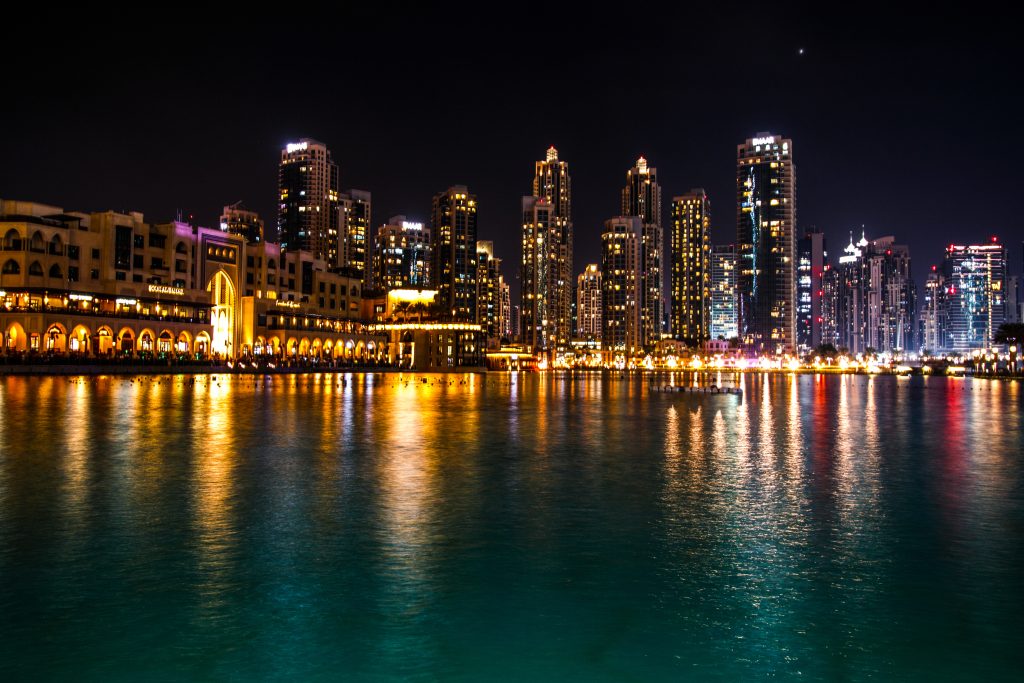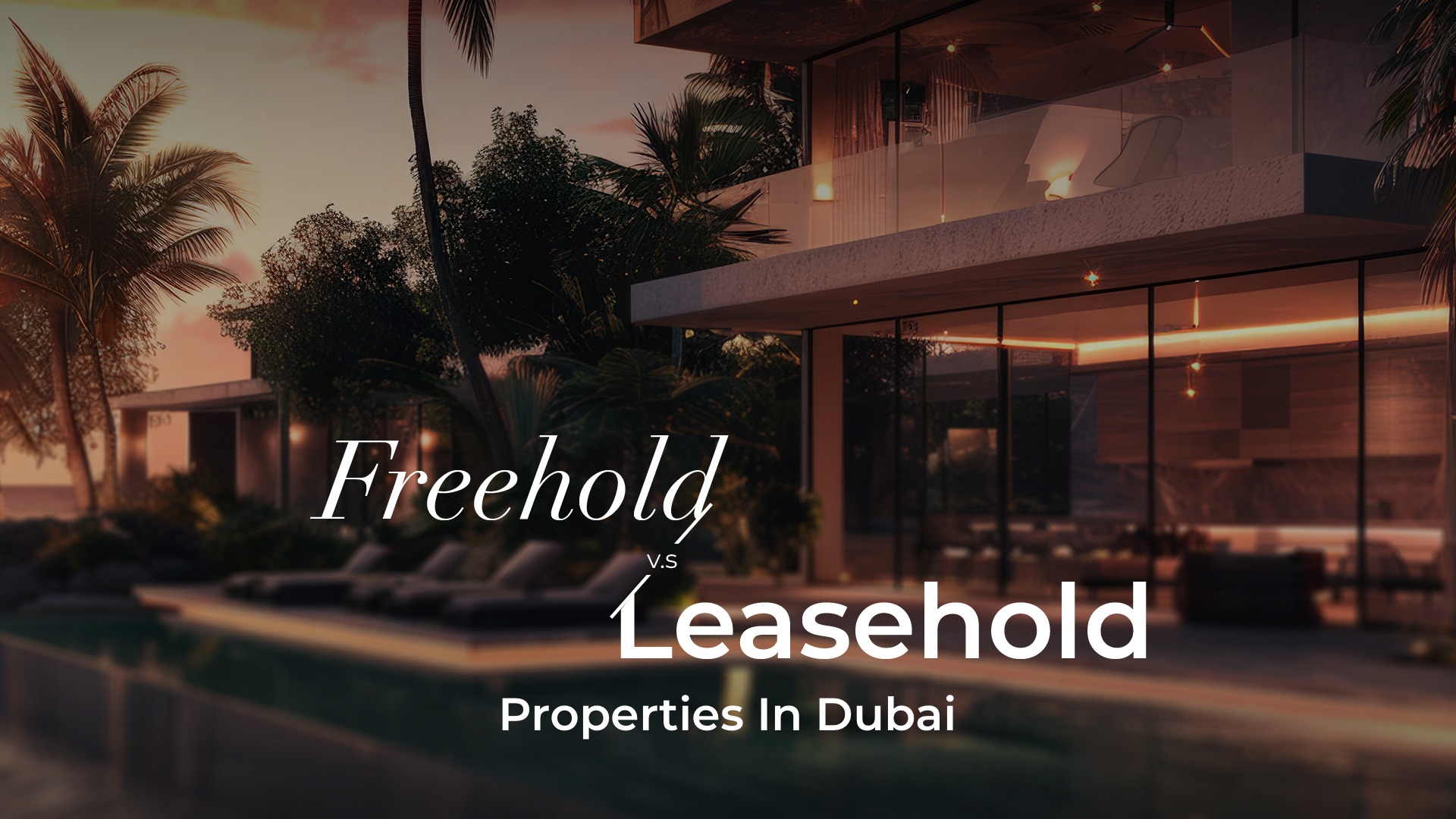The difference between freehold and leasehold properties in Dubai isn’t a technical footnote. It’s a fault line. On one side, full ownership. On the other hand, long-term access is on borrowed time.
In a city as high-velocity and globally scrutinized as Dubai, that line doesn’t just shape your portfolio. It shapes your freedom, your leverage, and your future.
Freehold is the gold standard. Full ownership of the property and the land beneath it. No countdown clock. No hidden landlord. It’s the foundation for control, resale power, and legacy planning.
Leasehold plays by another script. You’re not buying forever; you’re buying time. Thirty years, fifty years, maybe ninety-nine. You can live in it, rent it out, enjoy it, but the land isn’t yours. When the lease ends, so does your ownership. That single truth drives every other difference: pricing, control, financing, and your long-term strategy.
Ownership & Control: The Master Key, the Borrowed Key
Freehold hands you the master key; total command of your space. Live in it. Rent it. Reshape it. Sell it. The call is yours (as long as you respect municipal and community rules). No approvals. No second guesses.
Leasehold hands you a borrowed key with an expiry date stamped on it. You can still unlock the door, but big moves, knocking down walls, changing layouts, and subleasing often need the freeholder’s blessing.
This isn’t a small detail. It’s the difference between steering the car and riding shotgun. Want to redesign your interiors or flip a unit into a short-term rental? Freehold lets you move fast. Leasehold slows you down with paperwork and permissions.
That’s why autonomy-driven investors almost always gravitate toward freehold. They’re buying freedom as much as property. But for buyers who want a prime location with a lower upfront price and can live with restrictions, leasehold can be a calculated compromise.
Get a closer look into what freehold really means in our Comprehensive Guide to Freehold Property Ownership in Dubai.

Time Horizon: Permanent Vs Temporary
Freehold is permanent ownership. Once it’s yours, it’s yours indefinitely, no ticking clock, no reversion to a landlord. Leasehold is temporary by definition. The property ultimately reverts to the freeholder once the lease term expires unless renewed.
That ticking clock shapes everything from valuation to financing. A leasehold property with 80 or 90 years left may hold value well. But as the term shrinks to 20 or 30 years, resale becomes harder, banks become cautious about mortgages, and buyers demand discounts. If your plan is to hand a property down to your children, freehold provides the security and permanence that leasehold cannot.
Cost & Accessibility: Savings Vs Long-Term Value
Leasehold properties often tempt buyers with lower entry costs. In Dubai’s prime zones, leasehold can open doors to locations that would otherwise be priced out of reach. But that lower price reflects limited tenure and reduced control.
Freehold typically commands a premium. Yet that premium buys you more than just land; it buys you confidence. Freehold properties in Dubai tend to appreciate more predictably, retain stronger resale value, and attract wider buyer pools. Over a decade or more, that stability can outweigh the initial savings of a leasehold.
Financing & Resale Dynamics
Banks view freehold as a stronger asset, which generally translates into better financing terms, higher loan-to-value ratios, and more flexible mortgage products. Leasehold, especially with shorter remaining terms, can be trickier to finance.
Resale is similar. Freehold properties are easier to sell, attract investors worldwide, and don’t face the same discounting pressures that leasehold properties do as the lease term shortens. If liquidity and global investor appeal matter to you, freehold is usually the safer bet.

Visa & Residency Considerations
Dubai’s property-linked residency programs lean heavily on freehold. Ownership above a certain threshold in designated freehold zones can help secure long-term residence visas. Leasehold properties typically don’t offer that advantage. For international buyers seeking not just a home but a foothold in the UAE, that’s a decisive factor.
How to Make the Right Choice
1. Define Your Horizon
If you plan to be in Dubai for the long haul , building equity, enjoying capital appreciation, or creating a legacy , freehold is the natural fit. If your stay is shorter, your budget tighter, or your strategy is more opportunistic, leasehold could work.
2. Weigh Control vs Convenience
Do you want full freedom to renovate, sublet, and resell at will? Choose freehold. Are you comfortable with some restrictions in exchange for a lower cost? Leasehold might suffice.
3. Budget Beyond Purchase Price
Freehold comes with full maintenance responsibilities. Leasehold contracts sometimes allocate part of the upkeep to the freeholder, but always check the fine print. Understand your ongoing costs before you buy.
4. Understand the Lease Term
If you’re considering leasehold, scrutinize the remaining lease length and renewal conditions. A 90-year leasehold may behave much like freehold for decades, while a 25-year remaining term can complicate everything from resale to financing.
5. Align With Your Visa Goals
If residency is part of your strategy, freehold offers a clearer path to visa eligibility. Leasehold does not.
6. Assess Long-Term Value
Beyond lifestyle, think about an exit strategy. If you plan to sell in five to ten years, how will lease term erosion affect your price? Freehold shields you from that specific risk.

A Few Nuances Foreign Buyers Miss
Many foreign buyers assume that leasehold works the same way as in their home country. In Dubai, leasehold agreements are governed by UAE law, and their renewal or extension terms can vary widely. Due diligence is non-negotiable.
Check the freeholder’s reputation, the maintenance clauses, and what happens upon expiry. If a leasehold property is your choice, treat it as a living contract , one you’ll need to revisit before it runs out.
The Richmond Perspective
At Richmond Properties, we believe the choice between freehold and leasehold should never be a guess; it should be a strategy. We’ve helped hundreds of clients navigate Dubai’s evolving property market, weighing cost, control, and long-term value.
Our advisors specialize in matching your goals with the tenure that gives you maximum leverage, whether that’s a freehold villa in a high-growth zone or a leasehold apartment offering a premium location at a lower entry point.
In a market moving as quickly as Dubai’s, clarity is power. Richmond Properties stands for that clarity, guiding you beyond the listing, beyond the brochure, and into a decision that supports your wealth, lifestyle, and future.
FAQs
Can I convert the leasehold to freehold later?
In some cases, yes, but only in certain zones and with Dubai Land Department approval. It’s not automatic.
What happens when a leasehold term ends?
Unless renewed, rights revert to the freeholder. Renewal terms must be agreed upon in advance.
Do banks finance leasehold?
Some do, but typically only with long remaining lease terms. Freehold enjoys broader mortgage options.
Is freehold always the better option?
Not necessarily. Leasehold can still make sense for shorter-term living, lower upfront costs, or access to specific locations.
How does visa eligibility work?
Freehold properties above a set value can support residence visa applications; leasehold generally cannot.

